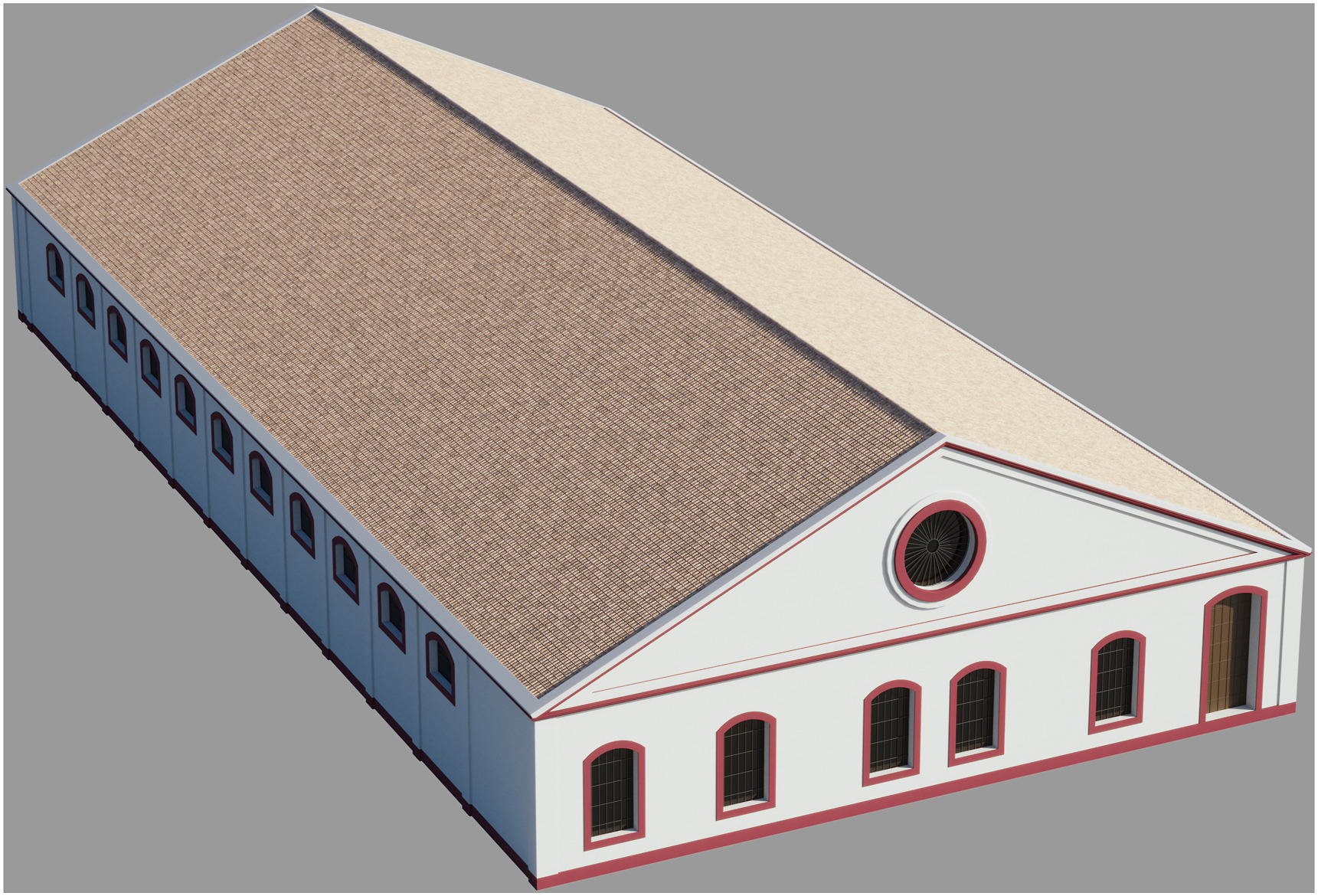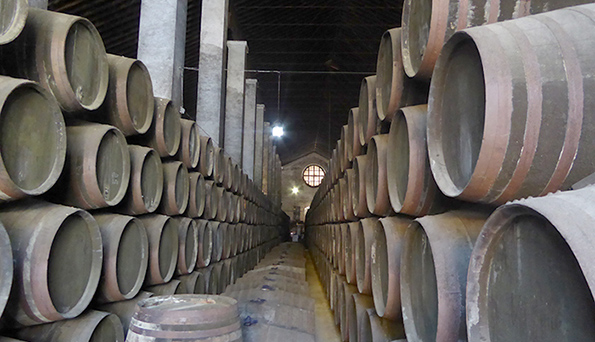Sherry wine ageing at risk due to climate change
ETSIAAB researchers Fernando R. Mazarrón, Ignacio Cañas and Eduardo G. Navia-Osorio, show that the temperature increase predicted for the middle of the century will prevent the activity of the microorganisms responsible for the biological ageing that makes sherry wines so unique.
February, 2023
A team of researchers from the 'Universidad Politécnica de Madrid' (UPM)analyses climate change's impact on the biological ageing of wines from Jerez. They have monitored the thermal behaviour of a winery for several years to develop and validate an energy simulation model of the building. Simulations were carried out by modifying the external climatic conditions for the future climate change scenarios proposed by the IPCC (Intergovernmental Panel on Climate Change).
As ETSIAAB's professor Fernando Ruiz, one of the study's authors, explains, if the global warming forecasts are fulfilled, by 2050, the average temperature in the area of Jerez could increase by 2.3 °C. Furthermore, this could increase up to 4 °C in the summer. Consequently, the temperature inside the ageing zone "will exceed comfort limit for the activity of microorganisms", which "threatens the production process in its current model", he says.

3D model
Biological ageing, the uniqueness of sherry wines is under threat
The importance of sherry wines in oenology is the singularity of biological ageing under the 'veil of flor', a yeast layer which grows on the wine's surface, protecting it from the air's oxidative action. Thus, the evolution or ageing of the wine is not oxidative but biological. Furthermore, the continuous activity of this 'veil of flor' promotes the appearance of different and peculiar organoleptic characteristics that make Jerez wines outstanding.
Abundant oxygen and sensitive environmental conditions are essential for this biological ageing process. For this reason, unique buildings, some age-old ones, are where ageing has traditionally been undertaken in. That is the case of 'cathedral warehouses' for sherry wines. Their easy and effective construction strategies promote specific ecological conditions for the biological ageing of wine without any mechanical climate control system. Thus, they represent a clear example of sustainable buildings (NZEB, Nearly Zero-Energy Buildings).
However, global warming may affect this traditional production process, so influenced by surrounding climatic conditions, as shown in this UPM study.

Interior section of the winery
It is at risk one of the best wine tourism destinations in the world
After centuries of success, "temperature increase caused by climate change could impact on the cathedral cellars effectiveness, endangering biological ageing by exceeding the limits for the activity of the microorganisms involved", the authors say.
Researchers Fernando Ruiz Mazarrón, Ignacio Cañas, and Eduardo Galán Navia-Osorio (ETSIAAB-UPM) and César Porras Amores (ETSEM-UPM) have carried out this study. It shows the need for a resilience plan to maintain sherry wines' production and organoleptic characteristics. It has been undertaken within the project "Bioclimatic design strategies in wineries as a model of NZEB, Nearly Zero-Energy Buildings", funded by the Spanish Ministry of Economy.
Besides, the simulation model developed and validated will analyse the effectiveness of new strategies for adapting buildings to the changes of coming decades. Beyond this case, the study highlights the need to explore climate change impacts on nearly zero-energy buildings to maintain sustainable production models.
EDUARDO G. NAVIA-OSORIO; CESAR PORRAS-AMORES; FERNANDO R. MAZARRÓN; IGNACIO CAÑAS 'Impact of climate change on sustainable production of sherry wine in nearly-zero energy building''. Journal of Cleaner Production. 2022.135260

